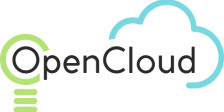Services Documentation
Identity & Access
Account, project and user management
Identity & Access — processes and technologies for managing user accounts, access, and role-based permissions across cloud and on-premises systems. It is a critical component of security as it controls who has access to resources and how that access is granted.
Key aspects of account, project, and user management:
Account Management:
- Account management systems enable the creation, modification, and deletion of accounts, ensuring access is granted only to verified users.
- Includes processes like authentication setup (passwords, multi-factor authentication) and session management to protect data.
Project and Resource Management:
- Allows grouping accounts and resources into projects for logical access control.
- Segregating resources by projects makes it easy to assign access rights and restrict permissions based on responsibility and needs.
Role-Based Access Control (RBAC):
- Uses roles to allocate resource access, minimizing the risk of excessive privileges.
- Policies within roles can restrict access to only the resources necessary for specific tasks.
User and Group Management:
- Enables grouping users with shared access rights.
- Group management streamlines access rights, especially in large organizations with many users.
Audit and Activity Tracking:
- Event logs track user actions and help detect anomalies in resource access.
- Auditing ensures access transparency and aids investigations in case of incidents.
Examples of account and access management use cases:
- Securing Cloud Resources: IAM (Identity and Access Management) in cloud platforms allows administrators to define which users can launch virtual machines, modify security settings, and view data.
- Multi-Factor Authentication (MFA): Enhances account security with two-factor authentication, reducing the risk of compromise.
- Access Segregation: Managing access rights for different departments or projects ensures users can only perform actions appropriate to their organizational roles.
Get a consultation from a manager!
Do you need to clarify the details? Discuss the requirements? Do you have a difficult project? We will help you find the right solution.
